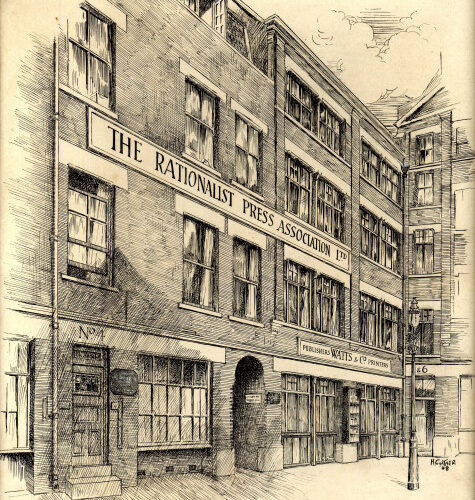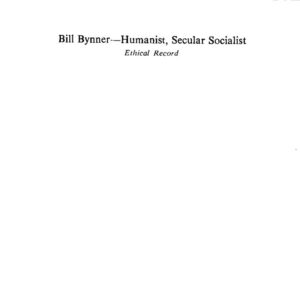

Rationalism is not a dogma but a method. It does not tell us what to believe but how to find out.
Hector Hawton, ‘What it is to be a rationalist’ in The Humanist, September 1970
Rationalism is the belief that reason should be the guiding principle in matters of what to believe. As a word, it dates to the 18th century, and applied particularly to the application of reason in matters of religion. In the 19th century, rationalism was adopted by many of those who explicitly rejected religious ideas in favour of rational explanations for the universe – encompassing atheists and agnostics. In 1899, the Rationalist Press Association was formed with the aim of spreading rationalist ideas, especially through publishing.
Historically, rationalism and humanism have been closely aligned, and the Rationalist Press Association (later the Rationalist Association) worked directly with the Ethical Union (now Humanists UK) as part of a Humanist Council (est. 1950) and the original British Humanist Association (est. 1963). In 2025, the Rationalist Association and Humanists UK merged.
See all posts on Humanist Heritage tagged ‘rationalism‘.

I am a humanist, a rationalist. My mother said to me, some weeks before she died, that she would die ‘an unrepentant […]

Bill Bynner was a humanist, socialist, and civil servant. As the editor of South Place Ethical Society‘s Ethical Record wrote […]

While much of the Humanist Heritage website looks back to the earlier years of the organised humanist movement, recent decades […]

He was the people’s First Minister, and this is a people’s ceremony. He wouldn’t want heavy mourning. This is a […]